Health Insurance FAQ
What factors affect my health insurance premium?
Your health insurance premium can be influenced by several factors. Things like your age, where you live, whether or not you use tobacco, the type of plan you choose, the level of coverage you want, and the number of individuals covered under the policy can all impact your premium.
What types of health insurance plans are available?
Health insurance plans come in various types, such as Health Maintenance Organization (HMO), Preferred Provider Organization (PPO), Exclusive Provider Organization (EPO), and Point of Service (POS) plans. Each plan has different networks of healthcare providers and varying levels of flexibility and cost-sharing.
Why do I need health insurance?
Health insurance provides financial protection in case of unexpected medical expenses. It ensures that you can access necessary healthcare services without worrying about exorbitant bills. Additionally, many countries require individuals to have health insurance to ensure that healthcare is accessible to everyone.
What does health insurance typically cover?
Health insurance plans vary, but they typically cover:
- Doctor visits
- Hospital stays
- Prescription medications
- Preventive care (vaccinations, screenings)
- Emergency services
- Maternity care
- Mental health services
- Rehabilitation services
- Laboratory tests and diagnostics
What is a premium, deductible, and copayment?
Premium: This is the amount you pay for your insurance plan on a regular basis, usually monthly or annually.
Deductible: It’s the amount you must pay out-of-pocket for covered healthcare services before your insurance plan starts to pay.
Copayment (Copay): This is a fixed amount you pay for specific services, like doctor visits or prescriptions, at the time of service.
What is the difference between HMO and PPO plans?
HMO (Health Maintenance Organization): These plans usually require you to choose a primary care physician (PCP) and get referrals to see specialists. They often have lower premiums and out-of-pocket costs but have a more limited network of healthcare providers.
PPO (Preferred Provider Organization): PPO plans offer more flexibility and do not require referrals to see specialists. They have a broader network of providers but generally come with higher premiums and out-of-pocket costs.
Can I keep my current doctor with my health insurance plan?
Whether you can keep your current doctor depends on your insurance plan’s network. Some plans restrict you to a specific network of doctors, while others offer more flexibility. It’s essential to check with your insurer and doctor to ensure they are in-network.
How do I enroll in a health insurance plan?
You can typically enroll in a health insurance plan during open enrollment periods, which occur annually. Some life events, such as marriage or job loss, may qualify you for a special enrollment period. You can also get health insurance through your employer, Medicaid, or the Health Insurance Marketplace.
Can I change my health insurance plan once I’ve enrolled?
Yes, you can usually change your health insurance plan during the annual open enrollment period or after certain qualifying life events, like getting married or having a child. Outside of these periods, changing plans can be more challenging.
What is a pre-existing condition, and how does it affect my coverage?
A pre-existing condition is a health condition you had before getting health insurance. Under the Affordable Care Act (ACA) in the U.S., insurance companies cannot deny you coverage or charge you more based on pre-existing conditions. Many other countries have similar regulations to protect individuals with pre-existing conditions.
What is the “out-of-pocket maximum”?
The out-of-pocket maximum is the highest amount you’ll have to pay for covered healthcare services in a given year. Once you reach this limit, your insurance plan typically covers 100% of your eligible medical expenses. It includes deductibles, copayments, and coinsurance.
Can I get health insurance if I’m self-employed?
Yes, self-employed individuals can purchase health insurance through the Health Insurance Marketplace, private insurers, or professional associations. You can also explore group health plans through organizations or associations relevant to your profession.
What happens if I don’t have health insurance?
In many countries, including the U.S., you may face financial penalties for not having health insurance. Additionally, without insurance, you’ll be responsible for covering all your medical expenses, which can be extremely costly in the event of serious illness or injury.
Remember that health insurance is an essential tool for managing your healthcare costs and ensuring access to necessary medical care. It’s crucial to thoroughly research and select a plan that suits your needs and budget to protect your health and financial well-being. If you have more specific questions or need personalized guidance, consider speaking with a healthcare insurance expert or a certified insurance agent.
Have More Questions?
Understanding insurance can be a daunting task, but remember, you don’t have to figure it all out on your own. We’re here to help. If you have additional questions or if there’s anything else you’re uncertain about, don’t hesitate to ask the Hatch.AI chatbot or call one of our qualified agents. We’re always ready to assist, providing instant responses and clarifications to make your insurance journey smoother.

